MIFT Arua Edition
Home »
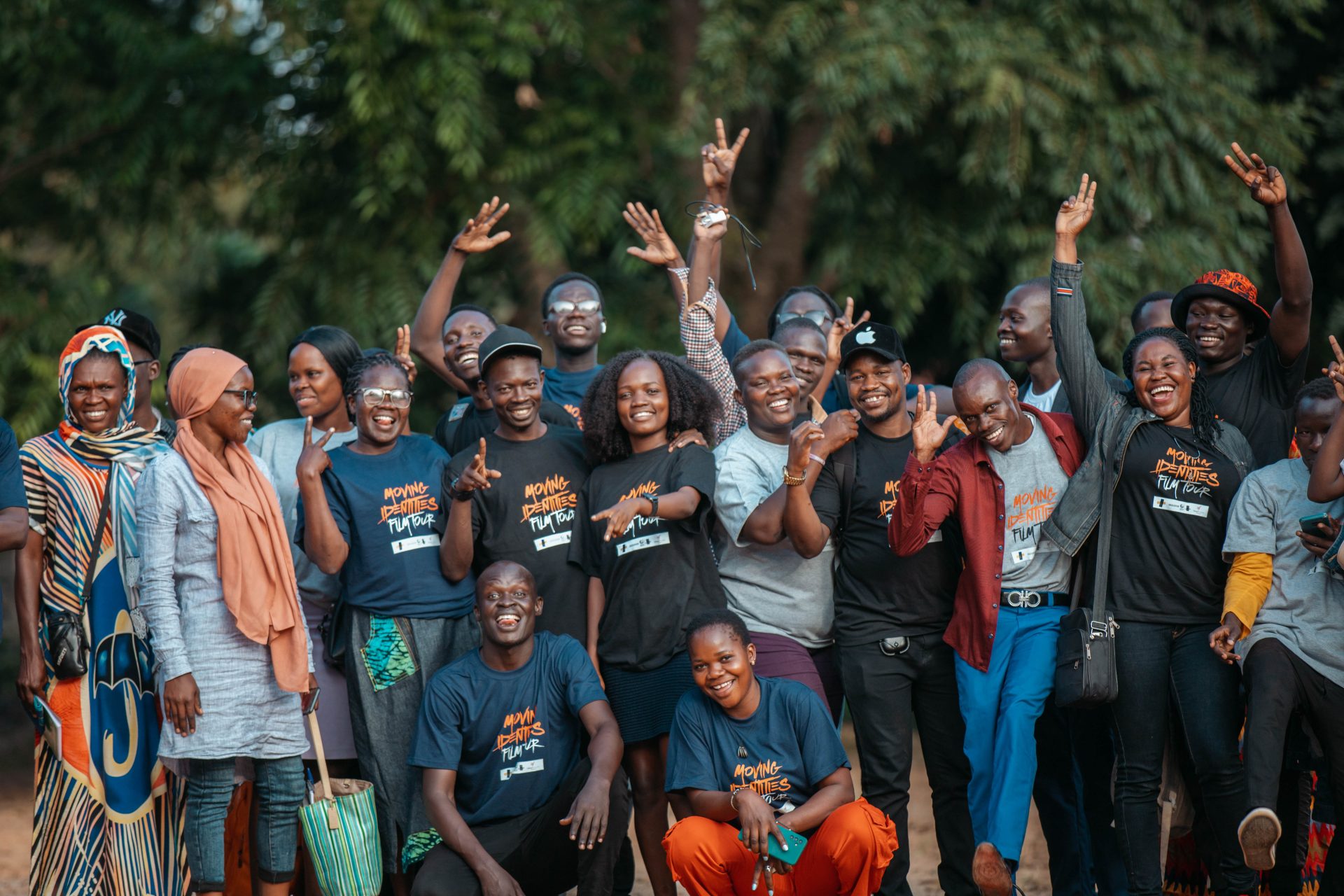
Moving Identities Film Tour goes to the West Nile region of Uganda. You heard right! The team after moving to Western and Eastern Uganda took the film tour to West Nile specifically, Arua district on Friday 14th June 2024. Arua is eight hours away from Kampala district and with this in mind, the team set off quite early to beat the morning traffic and try to cover as many kilometres before 1:00 pm.
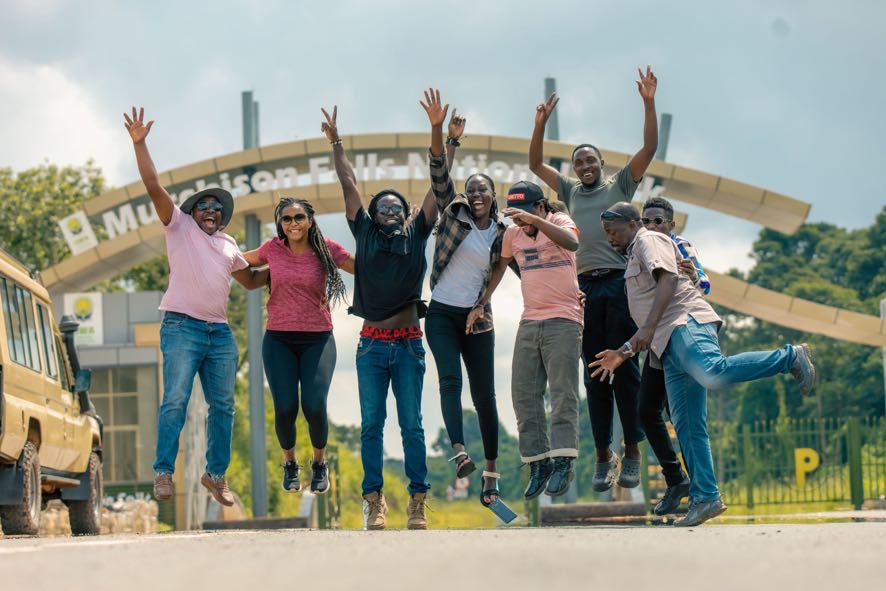
The highlight of the day’s travel was going through Murchison Falls National Park en route to Arua. The park is gorgeous with miles of dense vegetation, trees, and monkeys in Budongo forest and soon, we emerged into a landscape that was majestic and straight off a movie set. Pun intended! Even with the sun at its peak, we saw antelopes, elephants, kobs, warthogs, and monkeys.
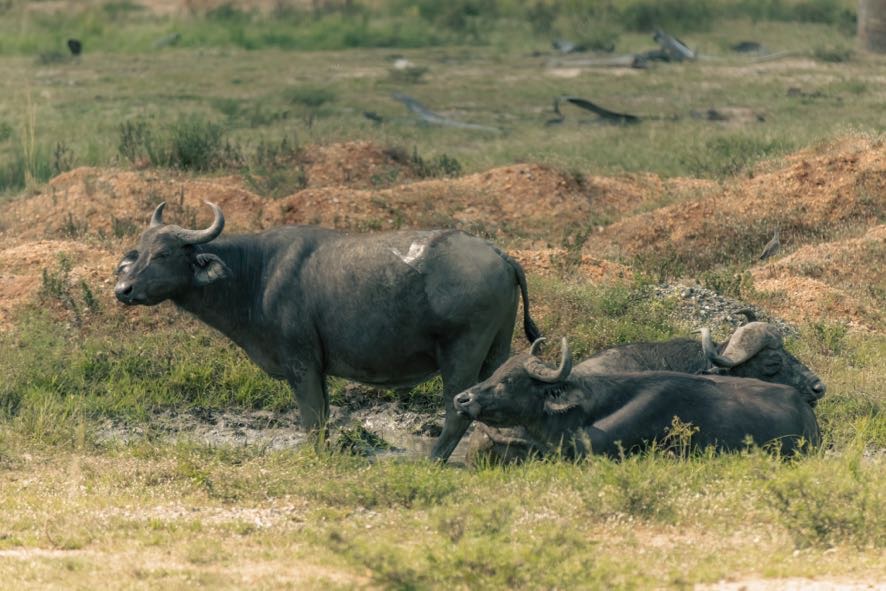
We soon left the park and turned onto Pakwach road which would lead us to Arua district. We arrived at our designated accommodation by 8:00 pm, fatigued and hungry. We retired to our rooms hoping to rest our weary bodies in time for the next day’s work.
On Saturday 15th June 2024, we walked into the City hall to an air of expectation, participants were already settled and ready to start the day’s work! This was largely possible with the West Nile Filmmakers Association which worked closely with the MIFT project manager, Ntale Bahana to get filmmakers in the region onto the workshop.
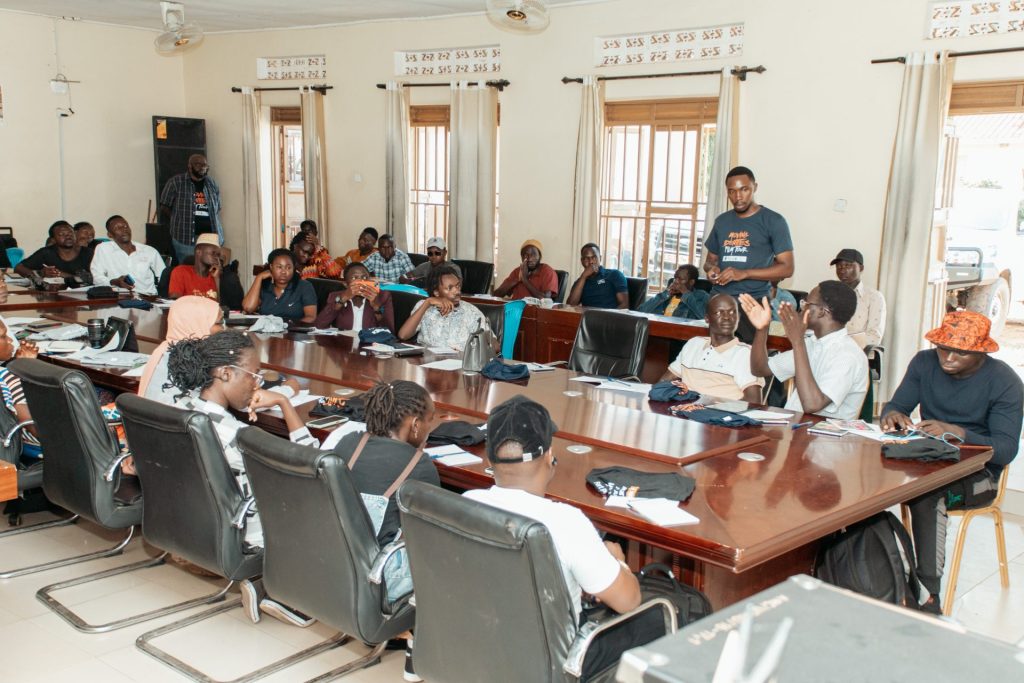
The session opened with filmmaker and artist Ian Nnyanzi asking participants to introduce themselves and mention one thing they like about Arua. The answers were as diverse as the foods in Uganda with some saying that they liked the diversity, friendly people, the curiosity of the people, strategic location neighbouring South Sudan and DRC, rich history, party scene, inclusive city, untapped potential, and talent. These reasons gave the team a glimpse of how the participants view Arua City. They are proud residents.
Ian went to the meat of the session on communicating story through visual language which depicted the shots in film such as extreme close up, long shot, medium shot, and shoulder level shot among others. Each shot enhances the storyline and a filmmaker ought to know which one to use in a particular scene and why. They were later asked why they used particular shots in the scenes they later created.
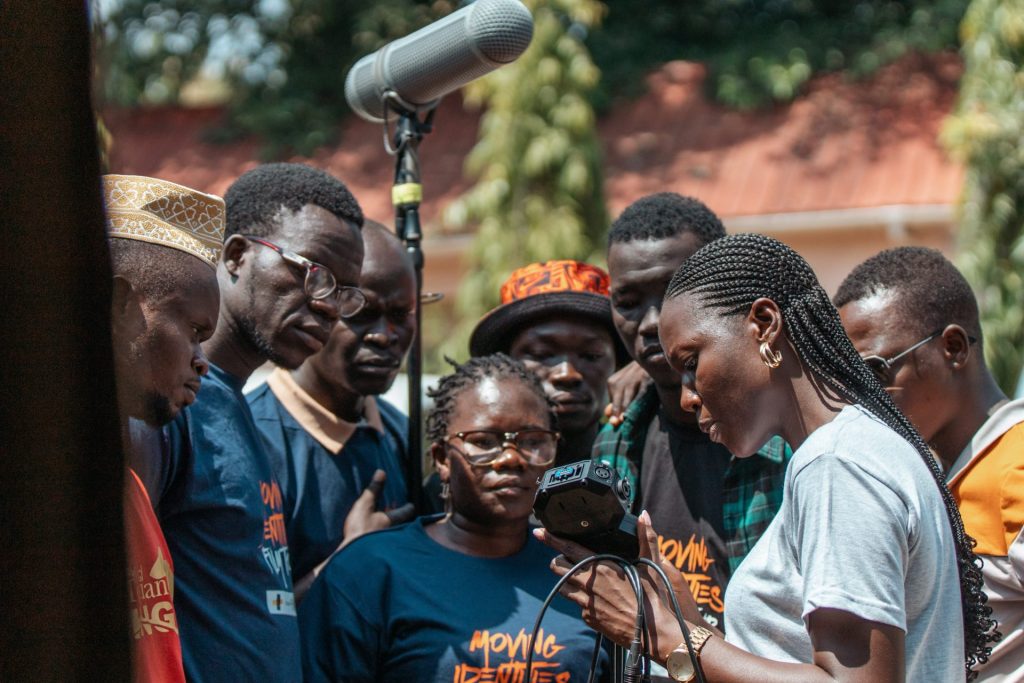
Session two was conducted by sound production recordist, Rebecca Amulen who taught them about the importance of sound in film. Like in Mbale district, the participants were able to practically interact with the sound equipment as though they were on a film set. Rebecca cautioned the filmmakers to think outside the box when it comes to the sound of their films. They could start by adding music that is native to West Nile in their films to foster collaboration between the two sectors. She further cautioned them to understand copyright laws as they are important to the creative sector.
Ian’s question What do you like about Arua city was pivotal in the the third session on storytelling from a cultural perspective by Arua based filmmaker and actress, Olemaru Consolate.
She gave several examples of entertainment that we consume that tells the cultures from different worlds such as Coco, a 2017 American animated fantasy film produced by Pixar Animation Studios and released by Walt Disney Pictures. The participants had watched it and could sing the songs adequately. According to Wikipedia, The concept for Coco is inspired by the Mexican holiday Day of the Dead. Pixar began developing the animation in 2016. Unkrich, Molina, Anderson, and some of the film’s crew visited Mexico for research.
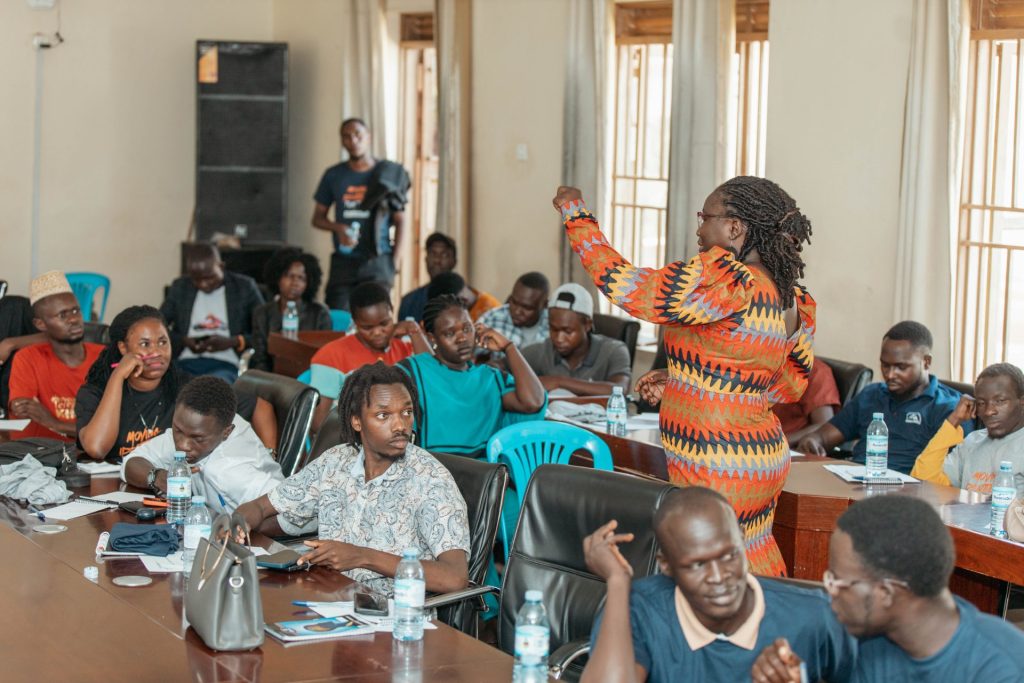
Consolate emphasized the importance of research on any project and coordinating with cultural leaders to align historical findings. She further encouraged the participants to tell stories about Arua as they have a rich heritage and many in the workshop enthusiastically agreed with her.
The afternoon session was of them creating a scene that speaks to culture in Arua putting into consideration the different shots that Ian had taught earlier on in the day and also the sound. The workshop mentors gave feedback on each film scene and fellow participants joined in as well.
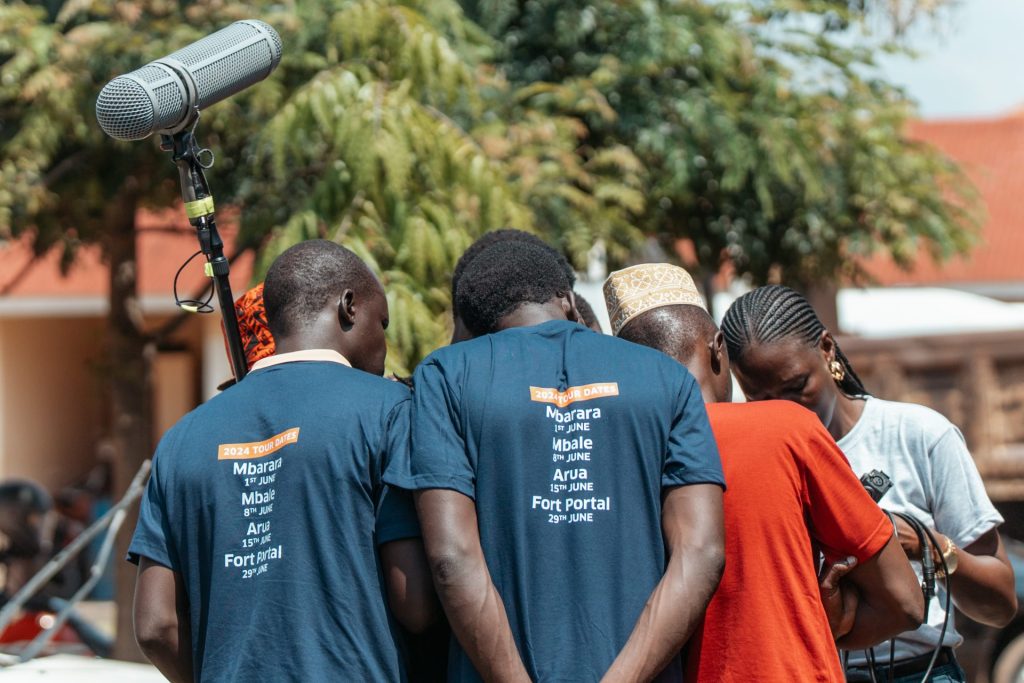
Once the final workshop remarks were made, participants thanked Goethe Zentrum Kampala/Ugandan German Cultural Society and Alliance Francaise de Kampala for ‘remembering’ them.
The team later transitioned to the film screening set up in Mayor’s Garden which is a stone’s throwaway from City Council Hall. It opened with dance, contemporary and traditional which was a good contrast to what we had discussed in the workshop earlier in the day. Tradition and modernity can co-exist.
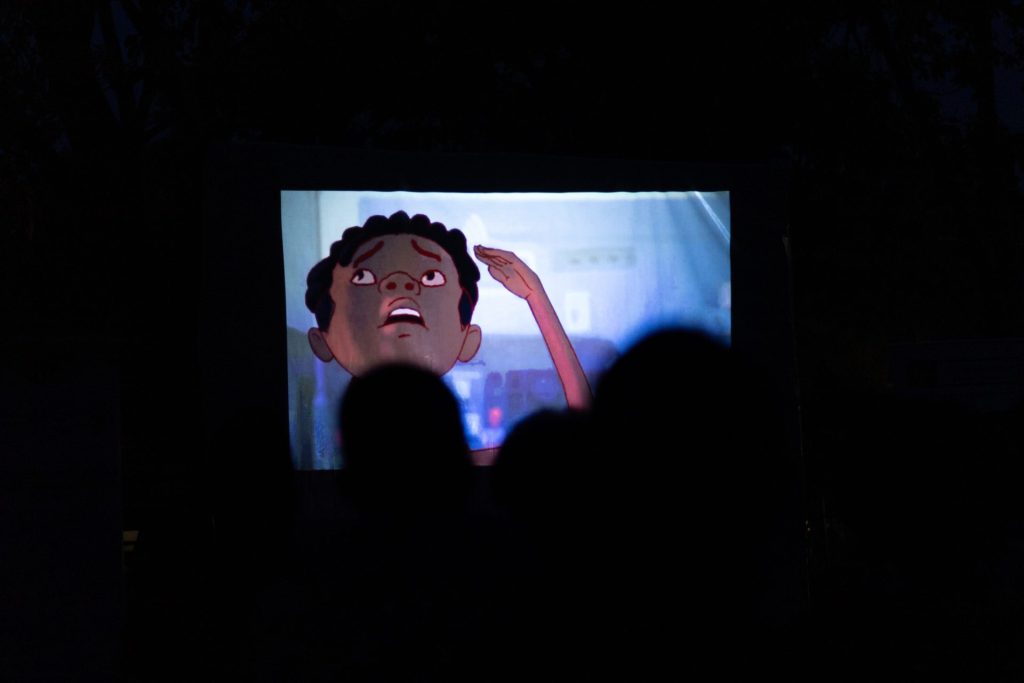
Arua residents were later treated to short films that included Ttula by Benjamin Mwesigwa, Keycard by Angela Emurwon, A Void Life by Ian Nnyanzi, and Mawe! by That Malcolm Guy. We had a feedback session where some participants said they thoroughly enjoyed the films, others didn’t appreciate some of the genres while others vowed to create work up to the standards of what they had watched.
